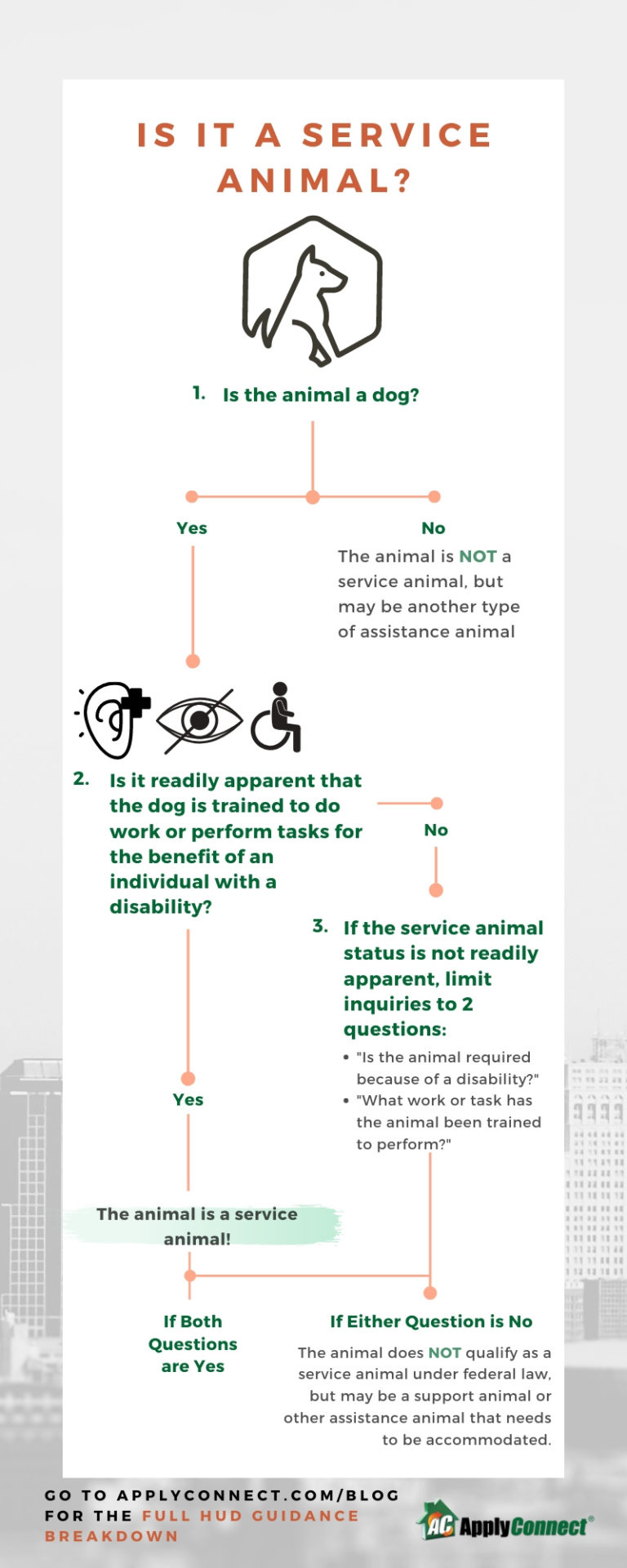Life may not be fair, but HUD and the FHA are here to try and help by releasing new guidance for housing providers. U.S. Department of Housing and Urban Development was created by President Johnson and was designed as a fight for justice and fairness. It was implemented in January of 1966, and only two years later passed the Fair Housing Act. Life may not be fair, but sometimes we try to force it to be.
As life moves forward, it can get more and more complex. Now they’re trying to tackle another issue.
In our previous coverage of emotional support animals, we tried to tackle the best ways for a property owner and manager to figure out if the animal was truly an emotional support animal or not. This effort was given to the fact that unfortunately, some people try to fake it. This is damaging both to those who are in dire need of a certified support animal and to landlord’s and property manager’s ability to offer the proper reasonable accommodations. HUD has noticed this and is trying to move forward.

The subject of recent documentation is “Assessing a Person’s Request to have an Animal as a Reasonable Accommodation Under the Fair Housing Act.” It is only to be taken as a ‘guidance document’ as it does not create or change any laws or regulations. This documentation was written as an aid for landlords and property managers to figure out, legally, what they are dealing with when an applicant requests a reasonable accommodation. For example, they state that it may be in your best interest to limit questions to those in the vein of “Is the animal required because of a disability?” or “What work or task has the animal been trained to perform?”
HUD also warns about online certificates, another way some people may try to falsely legitimize their pets as something they are not.
“In HUD’s experience, such documents from the internet is not, by itself, sufficient to reliably establish that an individual has a non-observable disability or disability-related need for an assistance animal.” In their stead, HUD advises a more legitimate note such as from a personal health care professional. For example, if the animal is not something that is often in a home, mainly dogs but including rodents, turtles, and others, the note may state why the requested animal isn’t a dog. Their health care provider may say that the person has a dog allergy, or that they require tasks that a dog cannot provide.

If this note is legitimate, then you can’t charge a fee for reasonably accommodating them. The animal is not a pet, and so breed/size limitations don’t apply. However, specific conduct issues in regards to the animal because of their danger may be applied.
HUD deals with a growing number of complaints based on denial of reasonable accommodations. Almost 60% of their complaints deal with requests for assistance animal accommodations and they note the number is “significantly increasing.” This document aims to make accommodating those with different needs easier on your part as a housing provider.
Consult legal counsel before taking any actions.
Subscribe to keep informed!









